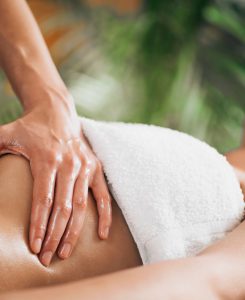Fertility is fast becoming one of those difficult issues in life, with studies showing that up to a third of couples face difficulties when trying for a baby. However, there a few simple steps you can take to get your body in optimum condition to conceive – these include eating the the right foods, eradicating toxins from your life, banishing stress and using complementary therapies. Here, the top lecturers from the College of Naturopathic Medicine share their advice on how to help boost your fertility.
1. Nutrient boost
Giving your body a nutrient boost can increase your chance of conceiving. Eat a rainbow assortment of five to seven portions iof vegetables and fruit daily to get a good intake of health protecting compounds. Vitamin E should be especially plentiful in your diet and can be found in cold pressed vegetable oils, wheat germ, sunflower and sesame seeds, and sardines. Fresh ginger root and some seeds are good sources of zinc, which is also required. You should also include protein and complex carbohydrates at each meal and eat a variety of whole grains; brown rice, quinoa, whole wheat, rye, and spelt. Try taking a good quality pregnancy multivitamin and mineral supplement too.
2. Exercise
Exercise helps to keep the body in balance. Yoga and walking for example, are great for metabolism and stress reduction, while tai chi and qi gong helps to regulate and strengthen the reproductive system.
3. Boost your reproductive energy
In traditional Chinese medicine, conception relies on sufficient reproductive energy or ‘jing’. Certain foods and supplements can help increase jing – for instance bone marrow, nettle, pollen and royal jelly. Some of the tonifying Chinese herbs such as cordyceps (a kind of mushroom) and Dang Gui (sometimes called ‘womens ginseng’) also help.
4. Avoid the culprits
Make dietary and lifestyle choices to support the body rather than fill it with artificial hormones, toxins and heavy metals:
Eat organic food to reduce your exposure to hormones and pesticides.
To reduce exposure to xenoestrogens (manmade compounds that mimic oestrogen), avoid foods wrapped in plastic clingfilm, and drink water out of glass bottles rather than plastic.
Don’t buy bagged salad due to possible toxins/bacteria.
Opt for a probiotic supplement, which includes at least 8 billion probiotic cultures, to help the body dispose of unwanted excess hormones.
Avoid caffeine – try instead fresh ginger and/or lemon with hot water to help the liver eliminate toxins.
Cut out smoking as it lowers fertility levels by directly affecting the ovaries and decreasing oestrogen levels.
5. Optimum absorption
Infertility can be linked to malabsorption in the digestive tract. If you suffer from conditions such as IBS, bloating, wind or nausea alongside problems conceiving, you may need to look at these issues first. Sprouted barley and mixed fermented grains have been shown to help improve absorption.
6. Essential fatty acids
EFAs are vital to regulate hormones so make sure you’re getting a sufficient helping in your diet
Eat oily fish three times a week, including wild salmon, mackerel, and herrings but not tuna due to its potential mercury content.
Incorporate seeds such as flax, pumpkin, sunflower and sesame into your diet. Use them in salads or salad dressings, or grind and add to porridge or soup.
Take an omega 3 (EPA and DHA) supplement at a level of 1000mg/day.
7. Herbal Helpers
Herbs are often used on the basis of their pharmacological actions.
Herbs such as epimedii and cuscutae can raise the basal body temperature to promote ovulation.
Chinese Angelica can help normalise of oestrogen and progesterone, helping to regulate menstruation.
Chinese turmeric – taken orally or as a pessary – can help dissolve endometrial or cyst tissue.
Some herbs – such as goji berries -– are known to contain high levels of key nutrients, which help to promote fertility.
A three herb combination including astragalus which prevents the rejection of the foetus by the body’s immune system (but this must be administered by a registered herbalist).
REMEMBER: Chinese herbs must only be taken under the guidance of a fully qualified herbalist, and member of appropriate professional body, such as the Register of Chinese Herbal Medicine (RCHM). Inappropriate use of herbs can worsen medical conditions.
8. Reflexology
A traditional healing art dating from the ancient Egyptians, reflexology involves manipulation of pressure points in the feet, which can help treat problems relating to fertility. Like a mini map of the inside of the body and relating to the organs and body systems, the massage of different points can unblock energy pathways in the body, to regain a natural balance. More specifically, it can affect the action of the fallopian tubes and the ovaries, and thus help boost fertility.
9. Acupuncture
Acupuncture has been shown to help reduce stress, increase blood flow to the reproductive organs and normalise ovulation and the menstrual cycle. It can also help increase sperm counts and mobility. Similarly, ear acupuncture can be effective in reducing stress and promoting conception.
* Compiled with advice from College of Naturopathic Medicine experts, nutritionist, Jacqui Lane; naturopath, Stephen Langley; acupuncturists and practitioners of Traditional Chinese Medicine, Henry McGrath and Neil Kingham and reflexologist, Angelic Skoberla. * CNM trains students in naturopathy, nutritional therapy, acupuncture, herbal medicine and homeopathy. Short courses and postgraduate courses are available in additional therapies. Each of CNM’s colleges across the UK operates a student clinic at which members of the public can book health consultations with advanced students working under qualified professionals. For more information about CNM visit naturopathy-uk.com or call 01342 410505.
Article by
Sarah Stanbury
Article by
Sarah Stanbury























